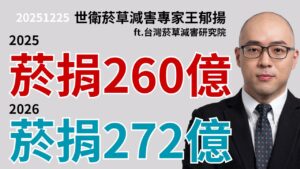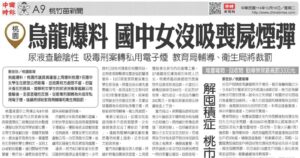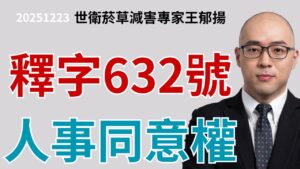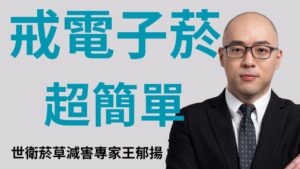From Medicine to Tobacco to Food: Taiwan Expert Exposes the Global Power Game Behind “Who Gets to Sell Nicotine”
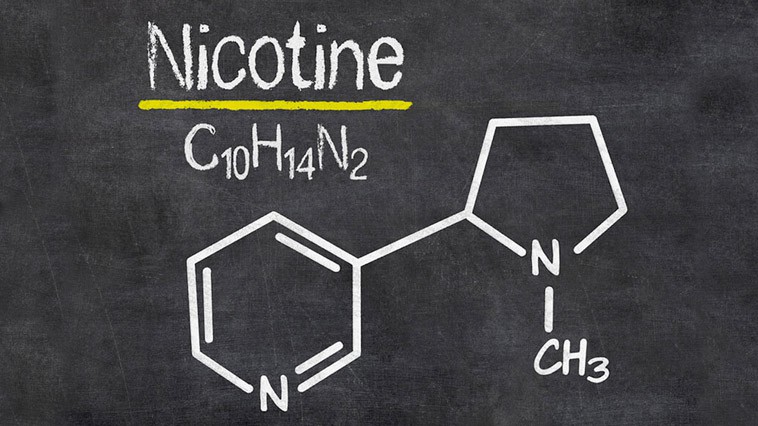
Global debates over tobacco control and harm reduction are shifting. The question is no longer simply “to smoke or not to smoke,” but rather “who gets to sell nicotine.”
Wang Yu-Yang, founder of the Taiwan Institute of Tobacco Harm Reduction (TiTHR) and a Taiwan tobacco harm reduction expert, stated bluntly in his latest live broadcast:
“Nicotine is not a poison — it’s a substance monopolized by pharmaceutical corporations.”
According to Wang, the battle over whether nicotine should be classified as a medicine, a tobacco product, or even a food, reveals a deeper struggle for control between global pharmaceutical giants and multinational tobacco conglomerates.
💊 1. Nicotine as Medicine: The Fortress of Pharmaceutical Monopoly
For decades, nicotine has been categorized within the medical system as a “pharmaceutical ingredient,” dominated by major drug companies.
Nicotine patches, gums, and inhalers — marketed as “smoking cessation aids” — are, in Wang’s view, classic examples of pharmaceutical firms using medical certification to secure patents and monopoly profits.
“When nicotine is in the hands of drug companies, it’s called a treatment,” Wang said. “But when tobacco companies use it, it suddenly becomes evil.”
He argued that this double standard not only restricts innovation in harm reduction technologies but also turns the cessation market into a cash machine for a handful of multinational pharmaceutical corporations.
🚬 2. Nicotine as a Tobacco Product: The Life-or-Death Line for Harm Reduction
In recent years, products such as Vape/e-cigarettes, heated tobacco, and nicotine pouches have been legalized across Europe and the United States.
The U.S. Food and Drug Administration (FDA) has already recognized that harm-reduction products can serve as alternative nicotine delivery systems, allowing smokers to consume nicotine “in a less harmful way.”
However, in Taiwan and much of Asia, governments still enforce blanket bans under the banner of “public health protection.”
Wang criticized this approach:
“The WHO pretends to be neutral, but in reality, it sides with pharmaceutical interests. The result is that both smokers and non-smokers suffer. The real danger isn’t nicotine — it’s the tar, carbon monoxide, and carcinogens from burning tobacco.”
He urged governments to regulate based on science rather than moral judgment, suggesting the introduction of a ‘health risk tax’ on harm-reduction products instead of total prohibition — ensuring both consumer safety and fair taxation.
🍎 3. Nicotine as Food: A Natural Substance Turned Political
Few realize that nicotine is not unique to tobacco.
“Nicotine naturally exists in everyday foods like eggplants, tomatoes, and potatoes — just in smaller amounts,” Wang explained.
He further revealed that in the U.S., several companies had developed nicotine-infused energy drinks and gummies, claiming they helped with focus and relaxation. These were quickly banned by the FDA.
“Those bans were likely pushed by the pharmaceutical lobby,” Wang said. “If nicotine were ever reclassified as a food ingredient, the drug companies’ patents would instantly lose their value.”
⚖️ 4. From Public Health Issue to Global Industry War
According to Wang, the nicotine controversy is no longer a matter of public health — it’s a global battle over definition and profit.
“Pharma companies want to monopolize nicotine’s medical status, while tobacco corporations want to redefine the market through harm-reduction products. Neither side is fighting for public good — they’re fighting for who gets to legally sell nicotine and profit from it,” he said.
He called on governments to base nicotine regulations on science, dismantle transnational monopolies, and restore public health policy to transparency, rationality, and scientific integrity.
🧭 “Nicotine Is Not the Crime — Monopoly Is the Disease.”
“Nicotine isn’t toxic — mismanagement is. What’s truly poisonous are policies dressed up in moralism and vested interests,” Wang concluded.
As harm reduction becomes a global policy turning point, Wang urged Taiwan to break free from ideological bias and face scientific reality:
“Only when we can honestly talk about nicotine can we truly reduce tobacco harm and move toward a healthy, smoke-free Taiwan.”
Featuring viewpoints from President Lai Ching-te, “Healthy Taiwan” convener Chen Chih-hung, Minister of Health and Welfare Shih Chung-liang, Consumers’ Foundation chairman Wu Jung-ta, “Health Tax” advocate Dr. Chiang Kuan-yu, and WHO tobacco harm reduction expert Wang Yu-Yang.
Related Coverage
- Clearing Nicotine’s Name
https://www.peopo.org/news/594860 - Understanding Nicotine: Risks, Misconceptions, and Facts
https://www.peopo.org/news/811859 - The Stigmatized Substance: Nicotine
https://www.peopo.org/news/595490 - Nicotine in Vegetables? U.S. Doctors Point Out Four Common Foods That Naturally Contain Nicotine
https://health.businessweekly.com.tw/article/ARTL003006786 - 8 Things You Might Not Know About Nicotine and Its Effects
https://vapetaiwan-media.com/news/%e9%97%9c%e6%96%bc%e5%b0%bc%e5%8f%a4%e4%b8%81%e5%8f%8a%e5%85%b6%e5%bd%b1%e9%9f%bf%e4%bd%a0%e5%8f%af%e8%83%bd%e4%b8%8d%e7%9f%a5%e9%81%93%e7%9a%848%e4%bb%b6%e4%ba%8b/


